
Jizzakh: The Jewel of Uzbekistan's Heartland
Nestled in the heart of Uzbekistan, Jizzakh is a city that offers a unique blend of history, culture, and natural beauty. Known for its rich heritage, Jizzakh is a perfect destination for travelers looking to explore the less crowded yet equally mesmerizing parts of the country. From ancient fortresses to vibrant bazaars, the city provides a glimpse into the authentic Uzbek way of life. Jizzakh is surrounded by stunning landscapes, including the Nuratau Mountains and the Aydar Lake. These natural attractions make it an excellent spot for outdoor enthusiasts who enjoy hiking, bird watching, and picnicking. The city itself is a tapestry of old and new, with modern amenities set against a backdrop of historical sites and traditional architecture. One of the highlights of visiting Jizzakh is experiencing its local cuisine. The city is famous for its fresh produce and traditional dishes, which you can savor at various local eateries and markets. Whether you're interested in history, nature, or culinary delights, Jizzakh promises an enriching and enjoyable experience for all types of travelers.
Local tips in Jizzakh
- Visit the local bazaars early in the morning for the freshest produce and best selection of traditional crafts.
- Bring comfortable hiking shoes if you plan to explore the Nuratau Mountains or other outdoor attractions.
- Try the local delicacies like plov and shashlik at family-owned restaurants for an authentic dining experience.
- Learn a few basic Uzbek phrases; locals appreciate the effort and it can enhance your interactions.
- Carry cash, as credit card facilities may not be widely available, especially in smaller shops and markets.
Jizzakh: The Jewel of Uzbekistan's Heartland
Nestled in the heart of Uzbekistan, Jizzakh is a city that offers a unique blend of history, culture, and natural beauty. Known for its rich heritage, Jizzakh is a perfect destination for travelers looking to explore the less crowded yet equally mesmerizing parts of the country. From ancient fortresses to vibrant bazaars, the city provides a glimpse into the authentic Uzbek way of life. Jizzakh is surrounded by stunning landscapes, including the Nuratau Mountains and the Aydar Lake. These natural attractions make it an excellent spot for outdoor enthusiasts who enjoy hiking, bird watching, and picnicking. The city itself is a tapestry of old and new, with modern amenities set against a backdrop of historical sites and traditional architecture. One of the highlights of visiting Jizzakh is experiencing its local cuisine. The city is famous for its fresh produce and traditional dishes, which you can savor at various local eateries and markets. Whether you're interested in history, nature, or culinary delights, Jizzakh promises an enriching and enjoyable experience for all types of travelers.
When is the best time to go to Jizzakh?
Iconic landmarks you can’t miss
Xotira maydoni
Discover the serene Xotira Maydoni, a memorial park in Jizzakh Region celebrating Uzbekistan's rich history and cultural heritage amidst beautiful landscapes.
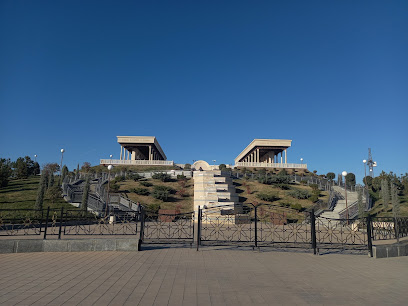
Zaamin National Park
Explore the breathtaking landscapes, diverse wildlife, and tranquil beauty of Zaamin National Park in Uzbekistan's Jizzakh Region.
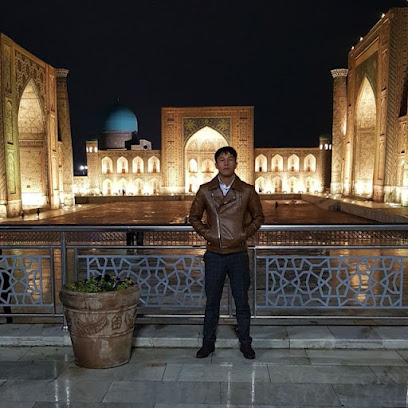
Haydar koʻl
Explore the serene beauty of Haydar Köl in Uzbekistan, a tranquil lake surrounded by stunning landscapes and rich cultural experiences.
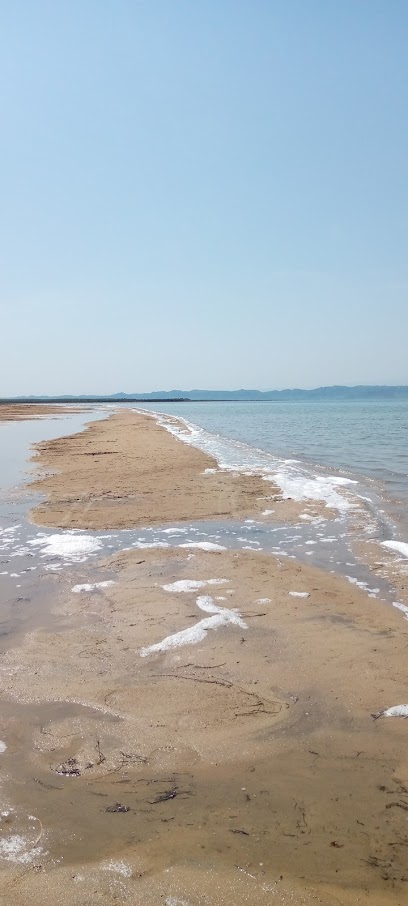
Zaamin Road
Discover the stunning landscapes and rich cultural heritage along Zaamin Road in Uzbekistan's Jizzakh Region for an unforgettable travel experience.
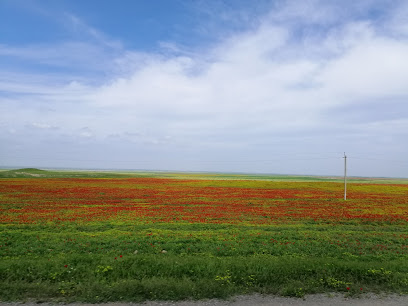
tishiktepa
Explore Tishiktepa, a historical landmark in Uzbekistan's Jizzakh Region, where ancient architecture meets stunning natural beauty.

Xayrobod tepaligi
Explore the serene beauty and rich history of Xayrobod Tepaligi in Jizzakh Region, Uzbekistan, a hidden gem for culture enthusiasts and nature lovers.
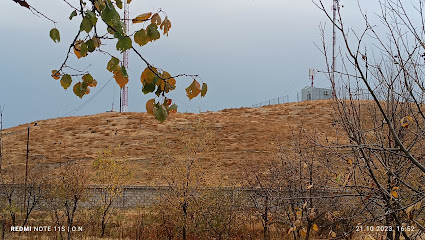
Toshkentlik
Explore the serene Toshkentlik Cemetery in Jizzakh, Uzbekistan, where history, artistry, and tranquility meet amidst a beautiful landscape.

Baxshi haykali
Experience the cultural richness of Uzbekistan at Baxshi Haykali, a captivating monument celebrating traditional storytelling and artistry.

Zhom Zhom
Explore Zhom Zhom, a stunning hiking area in Uzbekistan's Jizzakh Region, where nature meets tranquility and adventure awaits.

Бекзоджон
Discover the Bekzodjon Apartment Complex in Sirgali, Uzbekistan – your perfect base for exploring the stunning landscapes and rich culture of the Jizzakh Region.
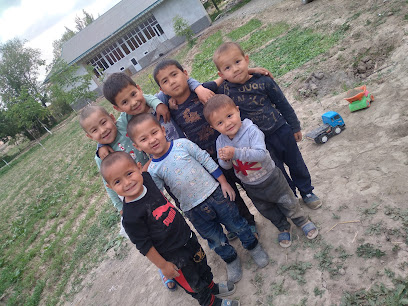
Qora tosh ziyoratgohi
Explore the enchanting Qora Tosh Ziyoratgohi, a historic landmark in Mukury, Jizzakh Region, where culture and tranquility converge.

Uchqiz togʻi
Discover the breathtaking beauty of Uchqiz Tog'i in Uzbekistan's Jizzakh Region, a tranquil tourist attraction surrounded by nature's wonders.
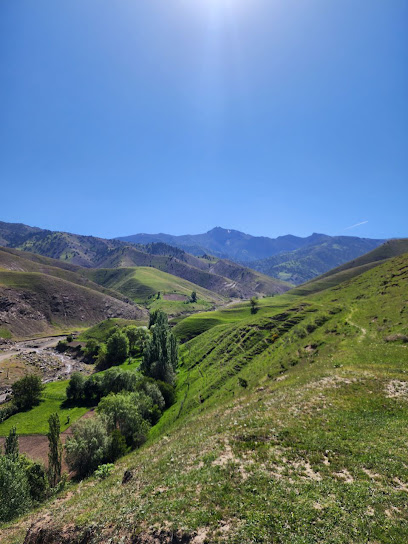
Chokku Mazar Ziyaratgakhy
Explore the serene hiking trails of Chokku Mazar Ziyaratgakhy, where nature and spirituality intertwine in Uzbekistan's breathtaking Jizzakh Region.

Chim
Discover the serene beauty and cultural richness of Chim, a hidden gem in Uzbekistan's Jizzakh Region, perfect for nature and adventure lovers.

Muhammadziyo
Explore the serene beauty of Muhammadziyo Garden in Jizzakh Region, Uzbekistan - a tranquil oasis perfect for relaxation and nature lovers.

Unmissable attractions to see
Xotira maydoni
Discover the serene beauty and historical significance of Xotira Maydoni, a tranquil memorial park in the heart of Uzbekistan's Jizzakh Region.
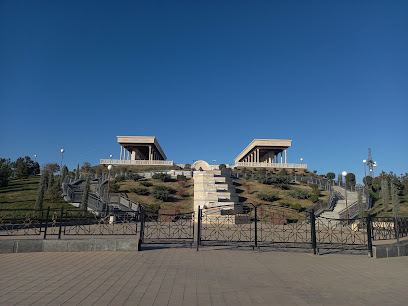
Zaamin Road
Explore the breathtaking scenery and rich culture along Zaamin Road in Uzbekistan's Jizzakh Region, an unforgettable experience for every traveler.
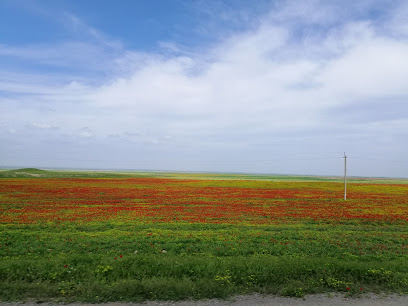
Do'lana dam olish maskani
Explore the beauty of Do'lana Dam Olish Maskani, a serene tourist attraction in Jizzakh Region, Uzbekistan, perfect for relaxation and nature lovers.
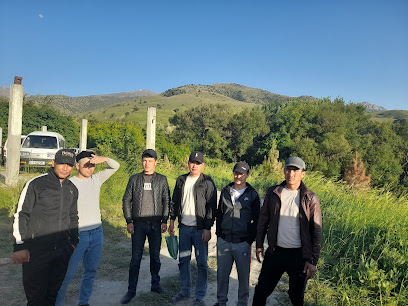
Uchqiz togʻi
Explore Uchqiz Tog'i, a natural wonder in Uzbekistan's Jizzakh Region, where breathtaking landscapes meet rich cultural heritage.
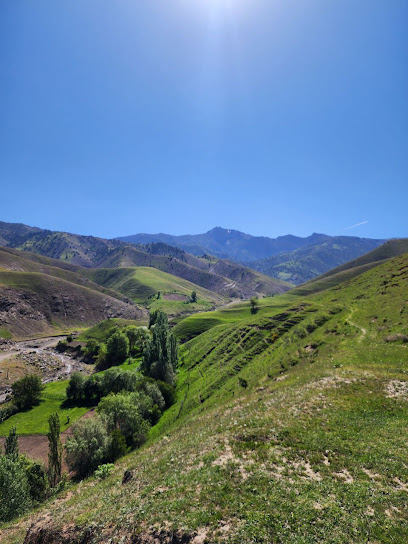
Chim
Explore the mesmerizing landscapes and rich culture of Chim, a hidden tourist attraction in Uzbekistan's scenic Jizzakh Region.

Forish Sharsharasi
Explore the breathtaking landscapes and rich cultural heritage of Forish Sharsharasi in Uzbekistan's stunning Jizzakh Region.

Музбел охоли яшаш пункти
Explore the Ohlia Yashash Museum in Bidani and immerse yourself in the rich cultural heritage of Uzbekistan through captivating exhibits and engaging experiences.

Essential places to dine
N1 Qipchoq Somsa. Islom Bobo choyxonasi
Experience authentic Uzbek cuisine at N1 Qipchoq Somsa in Jizzakh - home of delicious somsa and warm hospitality.
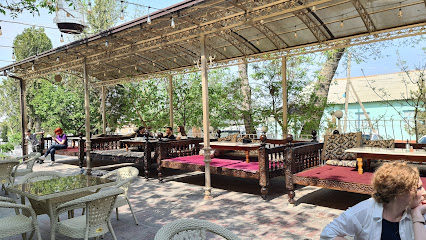
Dunyo
Experience authentic Uzbek cuisine at Dunyo in Jizzakh - where tradition meets taste.
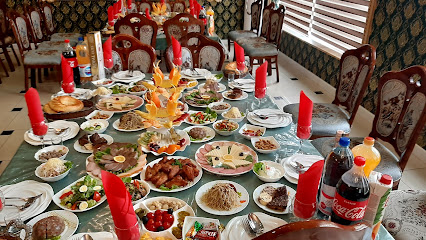
*ISLOMJON* чойхонаси
Discover authentic Uzbek cuisine at ISLOMJON Choykhonasi in Jizzakh - where tradition meets flavor in every dish.
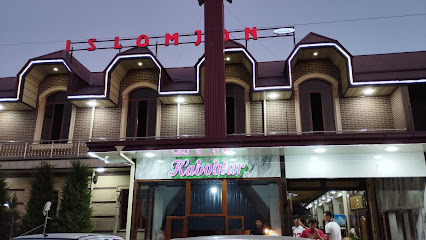
PRIM
Experience authentic Uzbek flavors at PRIM in Jizzakh - where every meal tells a story.
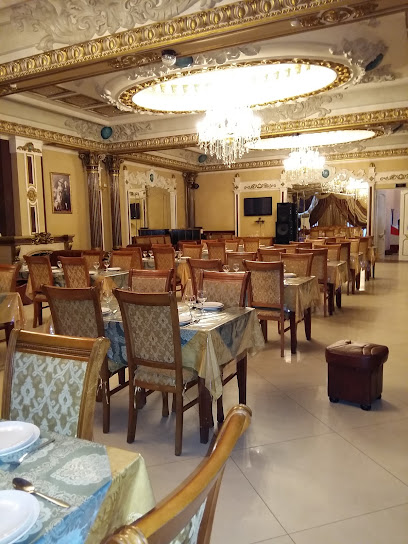
Sharshara Restoran Jizzax pereval
Experience authentic Uzbek flavors at Sharshara Restoran in Jizzakh - where tradition meets taste in a charming setting.
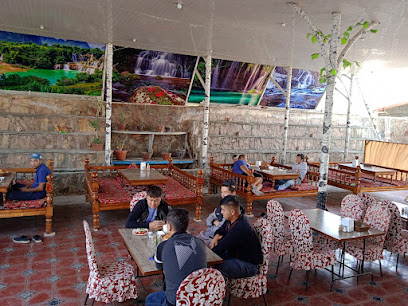
Star Burger
Experience the best of American cuisine at Star Burger in Jizzakh - where delicious burgers meet local charm.
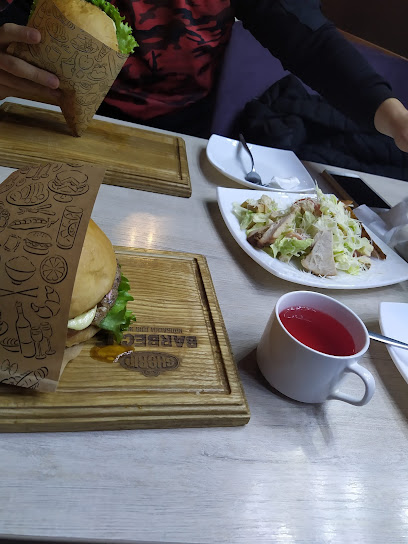
Sharshara
Discover the authentic tastes of Uzbekistan at Sharshara in Jizzakh - where tradition meets flavor in every dish.
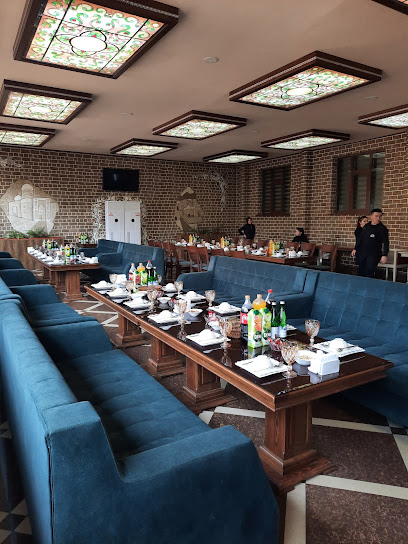
Nurbek Restaurant
Discover authentic Uzbek flavors at Nurbek Restaurant in Jizzakh – where tradition meets taste in every dish.
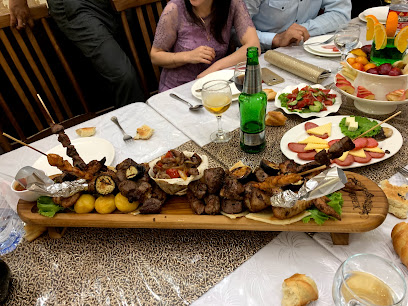
Great Garden
Experience tranquility at Great Garden in Jizzakh - an enchanting family-friendly escape filled with vibrant flora and serene pathways.
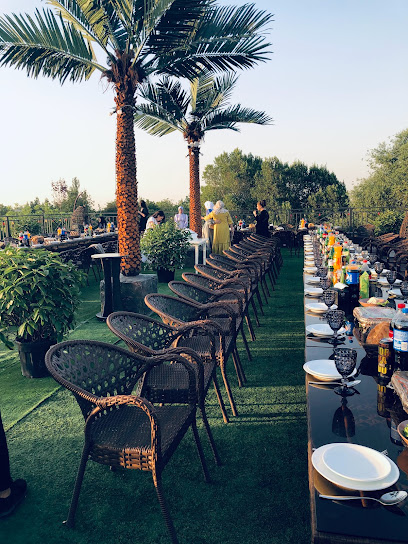
IFOR
Experience the authentic flavors of Uzbekistan at IFOR in Jizzakh – where tradition meets taste in every dish.
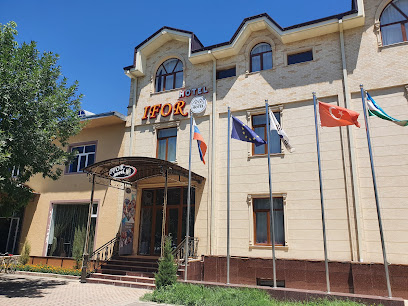
Shedevr
Discover authentic Uzbek flavors at Shedevr in Jizzakh - a must-visit culinary destination for food lovers.
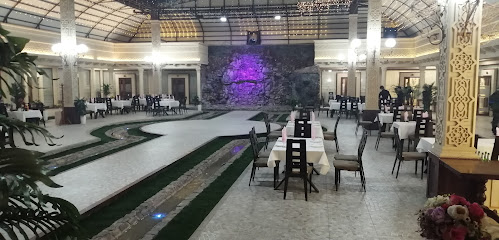
BigJoy
Discover the flavors of Uzbekistan at BigJoy Restaurant in Jizzakh – a culinary haven blending local traditions with international tastes.
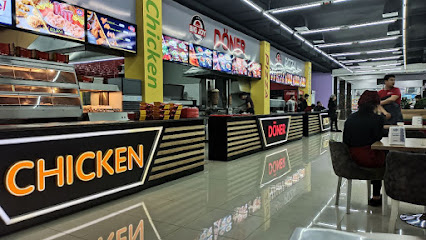
Osiyo Restaurant
Experience authentic Uzbek cuisine at Osiyo Restaurant in Jizzakh - where tradition meets flavor in every dish.
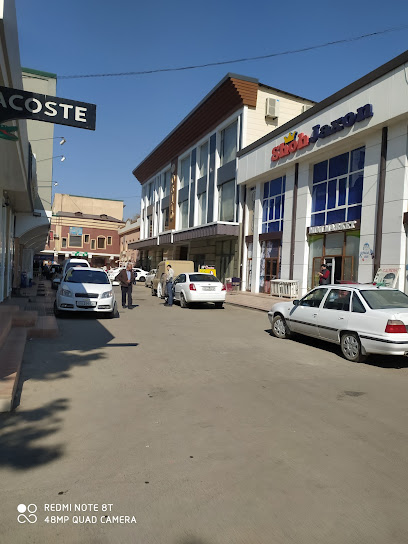
Favvora
Experience authentic Uzbek cuisine at Favvora in Jizzakh – a culinary gem offering traditional dishes in a warm atmosphere.
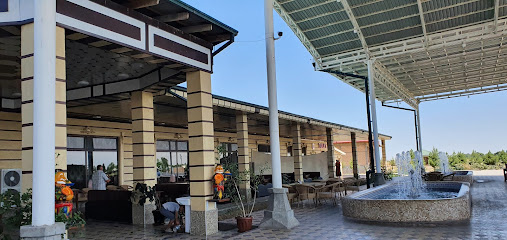
Restaurant ZA'FARON
Discover authentic Uzbek cuisine at Restaurant ZA'FARON in Jizzakh - a must-visit for food lovers seeking rich flavors and warm hospitality.
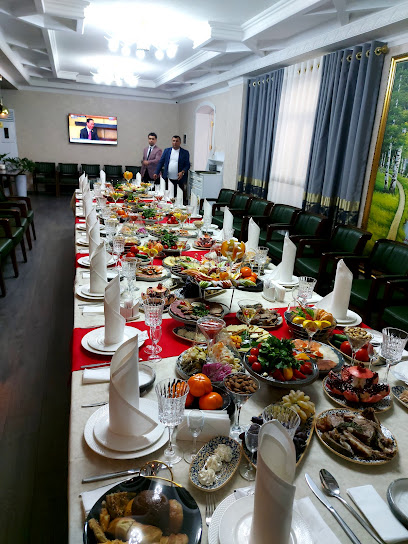
Markets, malls and hidden boutiques
Кук бозор
Experience the vibrant Kook Bozor in Jizzakh, Uzbekistan, a bustling market rich in fresh produce and local culture, perfect for every traveler.
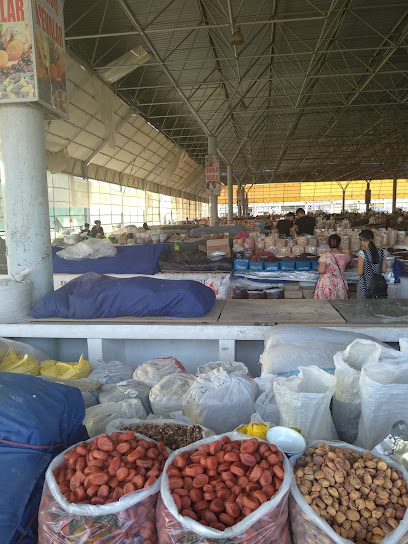
Into - erkaklar kiyim Dokoni
Explore the finest selection of men's fashion at Into - Erkaklar Kiyim Dokoni in Jizzakh, Uzbekistan, where style meets cultural heritage.
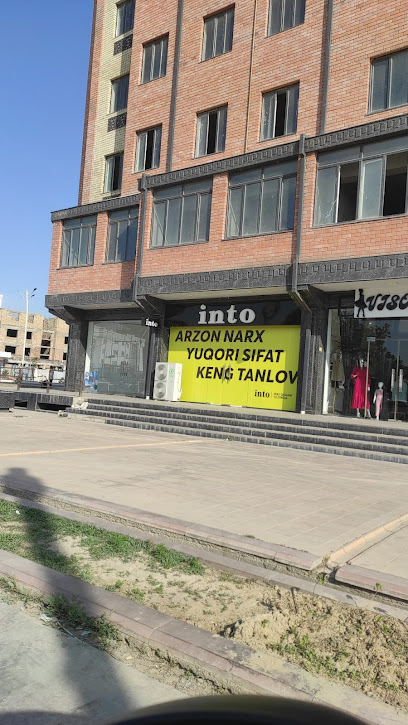
LACOSTE JIZZAX
Explore Lacoste Jizzax, a premier perfume destination in Jizzakh, where luxury scents and personalized service create an unforgettable shopping experience.
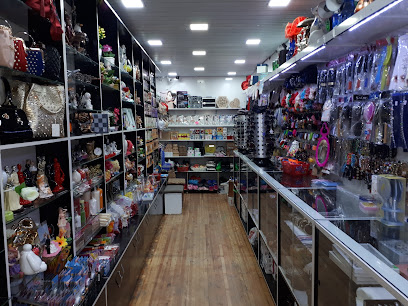
wish.store.uz
Discover the charm of Uzbekistan at Wish Store in Jizzakh, offering unique souvenirs, local delicacies, and handcrafted treasures.
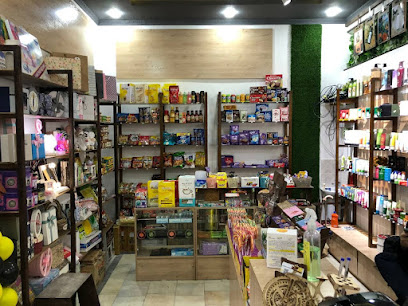
OMAD+ market
Explore the bustling OMAD+ Market in Jizzakh for an authentic taste of Uzbekistan's local culture and culinary delights.
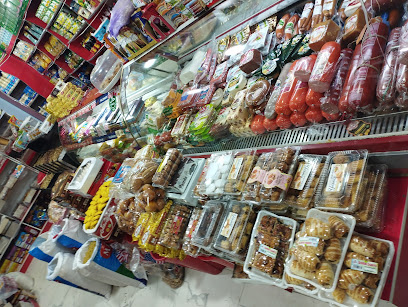
Magazin Tegen
Experience the flavors of Jizzakh at Magazin Tegen, a local grocery store offering fresh produce and regional specialties.
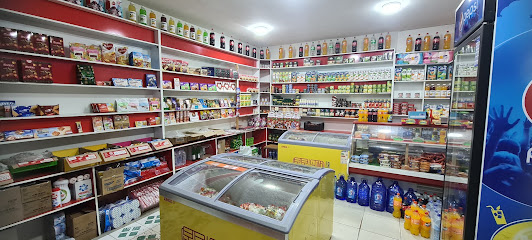
London Shop
Explore local flavors and culture at London Shop in Jizzakh, a delightful grocery store offering fresh produce and unique regional products.
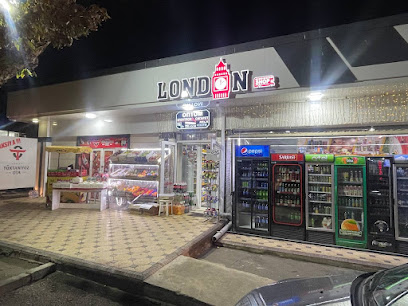
Farog'at ona market
Explore the rich culture and vibrant offerings of Farog'at Ona Market in Jizzakh, Uzbekistan, where tradition meets everyday life.

Magazin Zhenskoy Odezhdy
Explore the latest trends and timeless elegance at Magazin Zhenskoy Odezhdy, a premier women's clothing store in Jizzakh, Uzbekistan.
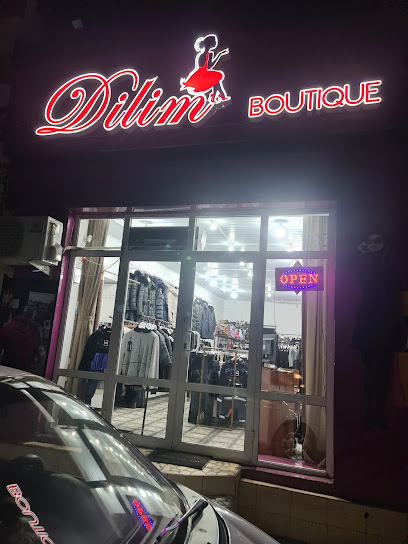
Minimarket
Experience the local charm of Jizzakh at the Minimarket, where convenience meets community spirit in Uzbekistan's vibrant grocery store.
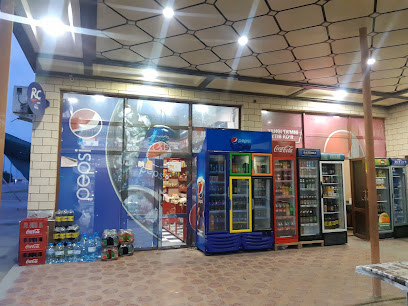
Kichkintoy
Discover the essence of Uzbek fashion at Kichkintoy in Jizzakh, where trendy styles meet cultural heritage.
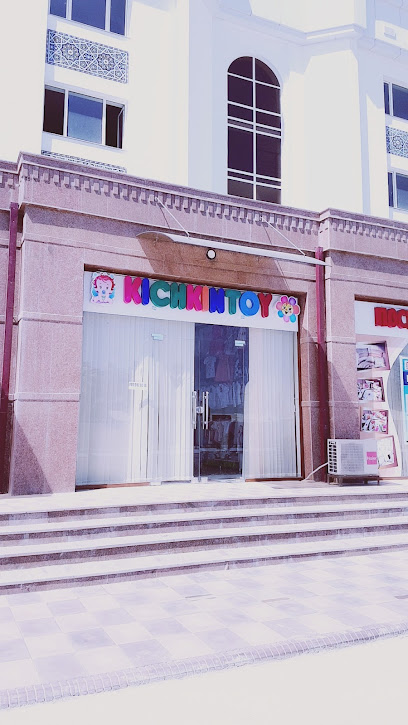
Mehribon Market
Explore Mehribon Market in Jizzakh, Uzbekistan, where local culture, fresh produce, and unique handicrafts create an authentic shopping experience.

Hayot Kuchi
Explore Hayot Kuchi in Jizzakh for a unique selection of organic health products that reflect Uzbekistan's rich wellness traditions.
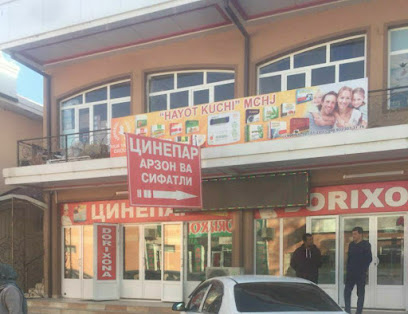
Pchelka
Explore the vibrant culture of Uzbekistan at Pchelka, a charming store in Jizzakh offering unique local products and souvenirs.

APELSIN
Discover the charm of Uzbekistan at Apelsin, where authentic local products create a unique shopping experience in Jizzakh.
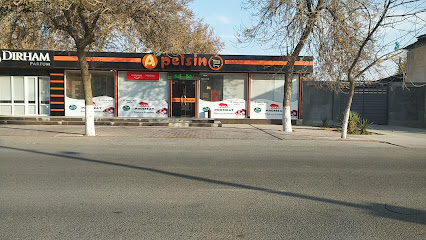
Essential bars & hidden hideouts
Oduvanchik
Discover the heart of Jizzakh at Oduvanchik, a charming beer hall offering local brews, delectable bites, and a lively atmosphere perfect for relaxation.
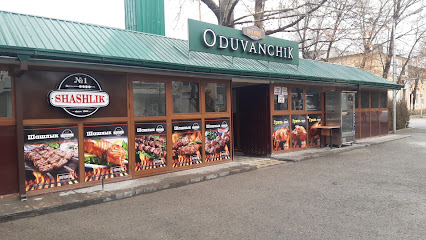
Illuzion Shisha Lounge Bar
Experience the best of Jizzakh at Illuzion Shisha Lounge Bar, where relaxation meets an exquisite selection of shisha in a vibrant atmosphere.
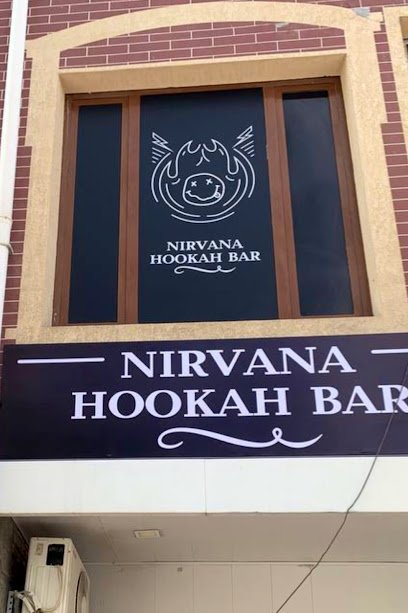
Shashlik. Uz
Explore the vibrant Shashlik. Uz bar in Jizzakh, where delightful local cuisine and a cozy atmosphere create unforgettable experiences for tourists.
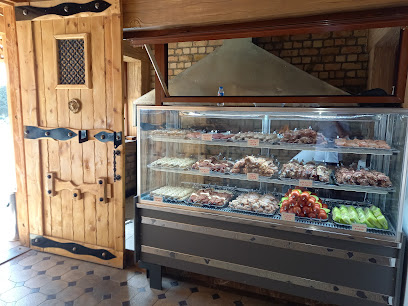
Sulola Bar
Experience the vibrant atmosphere and local flavors at Sulola Bar in Jizzakh, a perfect retreat for travelers seeking relaxation and fun.

SHOHONA Restoran IAA
Experience the rich flavors of Uzbekistan at SHOHONA Restoran IAA in Jizzakh, a must-visit for culinary enthusiasts and tourists alike.
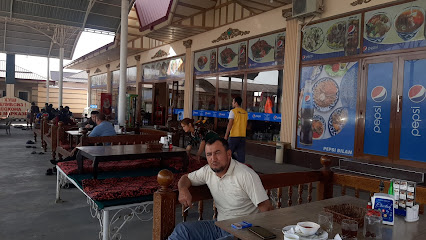
Shoxsaroy
Discover the vibrant bar scene at Shoxsaroy in Jizzakh, where local culture meets a lively atmosphere and refreshing drinks await.

Kõhinur tõyhonasi
Discover the vibrant atmosphere and local charm at Kõhinur Tõyhonasi, a hidden bar in Jizzakh Region, Uzbekistan.

Pandora Restaurant&Bar
Experience the vibrant tastes of Uzbekistan at Pandora Restaurant & Bar in Jizzakh, a culinary haven for travelers seeking local and international flavors.
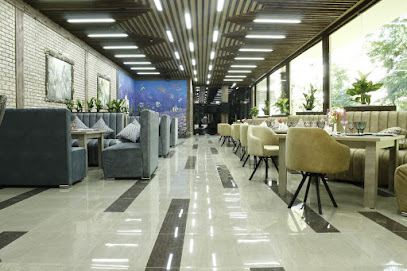
Кафе-Бар ,,komiljon,,
Indulge in local flavors and vibrant atmosphere at Кафе-Бар ,,komiljon,, in Jizzakh, the perfect retreat for tourists.
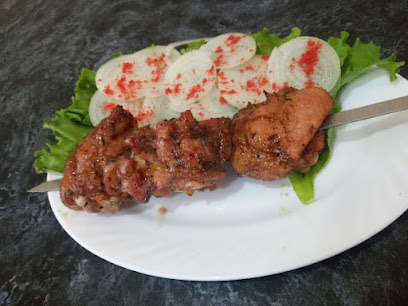
Firmennyy Bar Pivovarni Khan
Discover the vibrant atmosphere of Firmennyy Bar Pivovarni Khan, a top beer garden in Jizzakh, Uzbekistan, offering local brews and traditional cuisine.
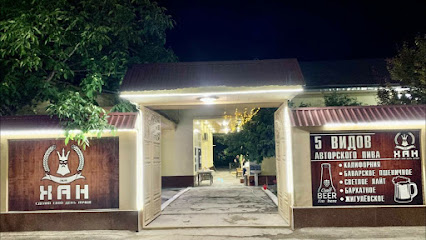
Anor
Experience the authentic charm of Anor Bar in Jizzakh, where local culture meets flavorful drinks in a welcoming atmosphere.
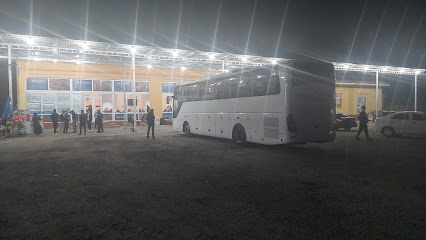
Navo tuyxonasi
Discover the vibrant local culture at Navo Tuyxonasi, a must-visit bar in Jizzakh, Uzbekistan, perfect for an evening of relaxation and socializing.

SULTAN GARDEN
Discover the serene charm of Sultan Garden, an inviting bar in Jizzakh offering refreshing drinks and a peaceful escape amid lush greenery.
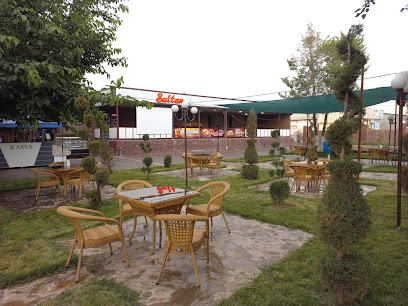
Toshkent
Explore Toshkent, Uzbekistan's vibrant capital, where rich history intertwines with modern charm and delightful culinary experiences await.
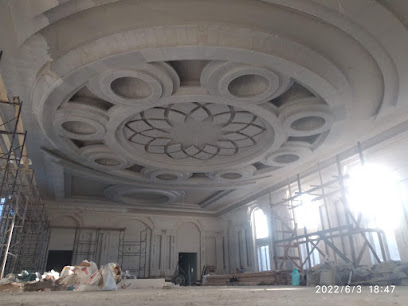
Shodiyor Pivo
Experience the local charm of Shodiyor Pivo in Jizzakh, where relaxation meets authentic Uzbek hospitality in a cozy bar atmosphere.

Local Phrases
-
- HelloСалом
[Salom] - GoodbyeХайр
[Khayr] - YesҲа
[Ha] - NoЙўқ
[Yo'q] - Please/You're welcomeМарҳамат
[Marhamat] - Thank youРаҳмат
[Rahmat] - Excuse me/SorryКечиринг/Узр
[Kechiring/Uzr] - How are you?Қалсизми?
[Qalsizmi?] - Fine. And you?Жуда яхши. Сизни?
[Juda yaxshi. Sizni?] - Do you speak English?Инглизча гапиришадими?
[Inglizcha gapiirishadimi?] - I don't understandМени тушунмади
[Meni tushunmadi]
- HelloСалом
-
- I'd like to see the menu, pleaseМенюни кўрмоқчиман, илтимос
[Menyuni ko'rmoqchiman, iltimos] - I don't eat meatМен гўшт йемайман
[Men go'sht yemayman] - Cheers!Сог'лиқ!
[Sog'lik!] - I would like to pay, pleaseТўловни хоҳлайман, илтимос
[Tolovni hohlaiman, iltimos]
- I'd like to see the menu, pleaseМенюни кўрмоқчиман, илтимос
-
- Help!Ёрдам!
[Yordam!] - Go away!Ёлга чиқинг!
[Yolga chiqing!] - Call the Police!Полицияни чақиринг!
[Politsiyani chaqiring!] - Call a doctor!Докторни чақиринг!
[Doktorni chaqiring!] - I'm lostМен йўл йўқман
[Men yo'l yo'qman] - I'm illМен касалман
[Men kasalman]
- Help!Ёрдам!
-
- I'd like to buy...Сотиб олишни истайман...
[Sotib olishni istayman...] - I'm just lookingФақат кўриб тураман
[Faqat ko'rib turaman] - How much is it?Бу қанча?
[Bu qancha?] - That's too expensiveУшбу очиқ
[Ushbu ochiq] - Can you lower the price?Нархни тўғирсангиз бўладими?
[Narxni to'girsangiz bo'ladimi?]
- I'd like to buy...Сотиб олишни истайман...
-
- What time is it?Соат қачон?
[Soat qachon?] - It's one o'clockБир соат
[Bir soat] - Half past (10)Оннинг ўртаси
[Onning ortasi] - MorningЭрта
[Erta] - AfternoonКечаси
[Kechasi] - EveningКеч
[Kech] - YesterdayКеча
[Kecha] - TodayБугун
[Bugun] - TomorrowЭртага
[Ertaga] - 1Бир
[Bir] - 2Икки
[Ikki] - 3Уч
[Uch] - 4Тўрт
[To'rt] - 5Беш
[Besh] - 6Олти
[Olti] - 7Йўлда
[Yo'lda] - 8Саккиз
[Sakkiz] - 9Тўққиз
[To'qqiz] - 10Он
[On]
- What time is it?Соат қачон?
-
- Where's a/the...?...қа ёқадими?
[...qa yoqadimi?] - What's the address?Манзил қандай?
[Manzil qanday?] - Can you show me (on the map)?Менга кўрсатасизми (харитада)?
[Menga korsatasizmi (haritada)?] - When's the next (bus)?Кейингиси қачон (автобус)?
[Keyingisi qachon (avtobus)?] - A ticket (to ....)Билет (.... га)
[Bilet (.... ga)]
- Where's a/the...?...қа ёқадими?
History of Jizzakh
-
Jizzakh, deriving its name from the Persian word 'Dizak' meaning small fort, has a history that dates back to the ancient times when it was a significant stop along the Silk Road. The region has been a hub for various civilizations, including the Sogdians, who were renowned merchants and traders.
-
During the height of the Silk Road, Jizzakh flourished as a critical trading post connecting the East and West. Caravans laden with silk, spices, and other precious goods would rest in the city's lush oases, contributing to its prosperity and cultural exchange. The bustling bazaars of Jizzakh were a melting pot of different cultures, languages, and traditions.
-
The arrival of the Arab armies in the 8th century brought significant changes to Jizzakh. The city became an important center for Islamic learning and culture. Madrasas and mosques were established, and Islamic scholars flocked to the city, leaving a lasting impact on its cultural and intellectual landscape.
-
In the 13th century, the Mongol Empire, under the leadership of Genghis Khan, swept through Central Asia, including Jizzakh. The city faced devastation but eventually recovered and integrated into the vast Mongol Empire. The Mongol rule brought about administrative reforms and further integrated Jizzakh into the regional trade networks.
-
During the 14th and 15th centuries, Jizzakh came under the rule of the Timurid Empire, founded by the legendary conqueror Timur (Tamerlane). The city saw a resurgence in architectural and cultural development. Later, it became part of the Shaybanid Dynasty, which continued to foster trade and cultural exchange in the region.
-
In the late 19th century, Jizzakh was incorporated into the Russian Empire, leading to significant infrastructural development and modernization. The Soviet era brought industrialization and collectivization, transforming the city's economic landscape. Soviet influence also introduced new educational and cultural institutions.
-
Following the dissolution of the Soviet Union in 1991, Jizzakh became part of the newly independent Republic of Uzbekistan. The city has since experienced rapid development, with investments in infrastructure, education, and tourism. Jizzakh continues to celebrate its rich historical and cultural heritage while embracing modernity.
Jizzakh Essentials
-
Jizzakh is located in central Uzbekistan, making it accessible from several major cities. The nearest international airport is Tashkent International Airport, approximately 200 kilometers away. From Tashkent, you can take a train, bus, or taxi to Jizzakh. The train journey is scenic and comfortable, taking around 3 to 4 hours. Buses and shared taxis (marshrutkas) are also available and offer a more budget-friendly option, though the travel time might be slightly longer.
-
Jizzakh is a relatively small city, so many attractions are within walking distance. For longer distances, taxis are readily available and affordable. Public buses and marshrutkas operate within the city and connect to nearby towns and villages. Renting a car is another option for those who prefer exploring at their own pace. Bicycles can be rented for a more eco-friendly and immersive experience.
-
The official currency in Uzbekistan is the Uzbekistani Som (UZS). While credit cards are accepted in some hotels, restaurants, and shops, it is advisable to carry cash, especially in smaller establishments and rural areas. ATMs are available in Jizzakh, but it is wise to withdraw sufficient cash in larger cities like Tashkent or Samarkand before traveling. Currency exchange services are also available in banks and major hotels.
-
Jizzakh is generally a safe destination for tourists. However, like any travel destination, it is advisable to take standard precautions. Avoid walking alone at night in unfamiliar areas and keep an eye on your belongings in crowded places. While Jizzakh does not have specific high-crime areas targeting tourists, it is always best to stay vigilant and aware of your surroundings.
-
In case of an emergency, dial 103 for medical emergencies and 102 for police assistance. Jizzakh has local police stations and medical facilities available. It is recommended to have travel insurance that covers medical emergencies. For minor health issues, there are pharmacies in the city where you can purchase over-the-counter medications. The emergency services are generally responsive, but having a local contact or guide can be beneficial in urgent situations.
-
Fashion: Do dress modestly, especially when visiting religious sites. Avoid wearing revealing clothing. Religion: Do respect local customs and traditions. Remove your shoes when entering mosques and cover your head if required. Public Transport: Do be respectful and give up your seat to elderly passengers. Don’t eat or drink on public transport. Greetings: Do greet people with a handshake and use your right hand. A slight bow of the head is also a sign of respect. Eating & Drinking: Do try local delicacies and accept food offerings graciously. Don’t refuse hospitality, as it is considered impolite.
-
To experience Jizzakh like a local, visit the bustling local markets where you can buy fresh produce and traditional Uzbek goods. Engage with locals, as they are often friendly and willing to share stories about the city's history and culture. Don’t miss the opportunity to sample local dishes like plov, samsa, and shashlik at local eateries. Exploring the nearby Nurata Mountains offers a chance to see beautiful landscapes and ancient petroglyphs. Participating in a local festival or event can provide a deeper understanding of the local culture and traditions.
Nearby Cities to Jizzakh
-
Things To Do in Jizzakh
-
Things To Do in Panjakent
-
Things To Do in Samarkand
-
Things To Do in Istaravshan
-
Things To Do in Shakhrisabz
-
Things To Do in Khujand
-
Things To Do in Tashkent
-
Things To Do in Tursunzoda
-
Things To Do in Dushanbe
-
Things To Do in Vahdat
-
Things To Do in Chirchiq
-
Things To Do in Angren
-
Things To Do in Navoi
-
Things To Do in Qarshi
-
Things To Do in Shymkent






